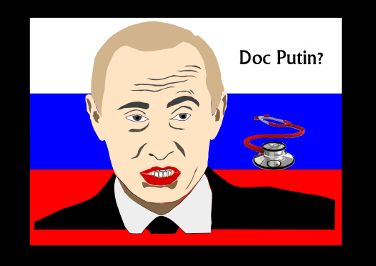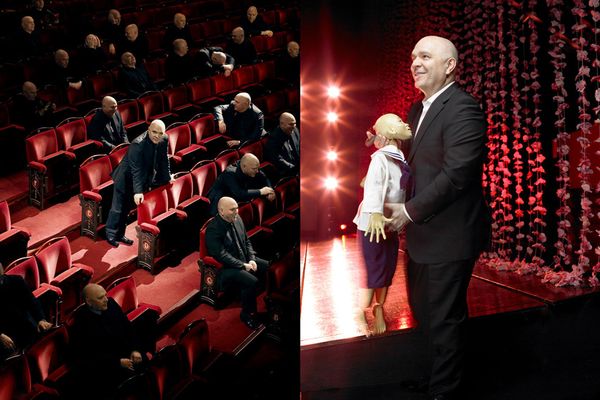12th February, 2012
We like to have a bet on the BAFTA winners in our house. Although two of us are BAFTA voters, we are privy to no inside-info. The winner of the predictions game is usually our son Dante, who is good at the BAFTAs, but brilliant at the Oscars.
Meanwhile, let’s see if we’re right on this year’s BAFTAs. Obviously these are predictions, not votes for who ought to win – that’s a whole ‘nother ball game.
Best Film
• The Artist
• The Descendants
• Drive
• The Help
• Tinker Tailor Soldier Spy
Dominic: The Artist
Sarah: The Artist
Dante: The Artist
Outstanding British Film:
• My Week With Marilyn
• Senna
• Shame
• Tinker Tailor Soldier Spy
• We Need To Talk About Kevin
Dominic:Kevin
Sarah: Shame
Dante: Tinker Tailor
Outstanding debut by a British writer, director or producer:
• Attack The Block – Joe Cornish (director/writer)
• Black Pond – Will Sharpe (director/writer), Tom Kingsley (director), Sarah Brocklehurst (producer)
• Coriolanus – Ralph Fiennes (director)
• Submarine – Richard Ayoade (director/writer)
• Tyrannosaur – Paddy Considine (director), Diarmid Scrimshaw (producer)
Dominic: Tyrannosaur
Sarah: Tyrannosaur
Dante: Tyrannosaur
Foreign language film:
• Incendies
• Pina
• Potiche
• A Separation
• The Skin I Live In
Dominic: Skin
Sarah: Pina
Dante: Skin
Director:
• The Artist – Michel Hazanavicius
• Drive – Nicolas Winding Refn
• Hugo – Martin Scorsese
• Tinker Tailor Soldier Spy – Tomas Alfredson
• We Need To Talk About Kevin – Lynne Ramsay
Dominic: Kevin
Sarah: Drive
Dante: Hugo
Leading actor:
• Brad Pitt – Moneyball
• Gary Oldman – Tinker Tailor Soldier Spy
• George Clooney – The Descendants
• Jean Dujardin – The Artist
• Michael Fassbender – Shame
Dominic: Jean Dujardin
Sarah: George Clooney
Dante: Gary Oldman
Leading actress:
• Berenice Bejo – The Artist
• Meryl Streep – The Iron Lady
• Michelle Williams – My Week With Marilyn
• Tilda Swinton – We Need To Talk About Kevin
• Viola Davis – The Help
Dominic: Meryl, Meryl, Meryl, must be Meryl…
Sarah: Meryl
Dante: Meryl
Supporting actor:
• Christopher Plummer – Beginners
• Jim Broadbent – The Iron Lady
• Jonah Hill – Moneyball
• Kenneth Branagh – My Week With Marilyn
• Philip Seymour Hoffman – The Ides Of March
Dominic: Hoffman
Sarah: Branagh
Dante: Branagh
Supporting actress:
• Carey Mulligan – Drive
• Jessica Chastain – The Help
• Judi Dench – My Week With Marilyn
• Melissa McCarthy – Bridesmaids
• Octavia Spencer – The Help
Dominic: Melissa McCarthy
Sarah: Carey Mulligan
Dante: Carey Mulligan
Documentary:
• George Harrison: Living In The Material World
• Project Nim
• Senna
Dominic: Senna
Sarah: Senna
Dante: Senna
Animated film:
• The Adventures Of Tintin: The Secret Of The Unicorn
• Arthur Christmas
• Rango
Dominic: Tintin
Sarah: Rango
Dante: Tintin
Original screenplay:
• The Artist – Michel Hazanavicius
• Bridesmaids – Annie Mumolo, Kristen Wiig
• The Guard – John Michael McDonagh
• The Iron Lady – Abi Morgan
• Midnight In Paris – Woody Allen
Dominic: Paris
Sarah: Paris
Dante: Paris
Adapted screenplay:
• The Descendants – Alexander Payne, Nat Faxon, Jim Rash
• The Help – Tate Taylor
• The Ides Of March – George Clooney, Grant Heslov, Beau Willimon
• Moneyball – Steven Zaillian, Aaron Sorkin
• Tinker Tailor Soldier Spy – Bridget O’Connor, Peter Straughan
Dominic: Ides
Sarah: Ides
Dante: Ides
Original music:
• The Artist
• The Girl With The Dragon Tattoo
• Hugo
• Tinker Tailor Soldier Spy
• War Horse
Dominic: Girl With The Dragon Tattoo
Sarah: Hugo
Dante: The Artist
Cinematography:
• The Artist
• The Girl With The Dragon Tattoo
• Hugo
• Tinker Tailor Soldier Spy
• War Horse
Dominic: The Artist
Sarah: The Artist
Dante: Hugo
Editing:
• The Artist
• Drive
• Hugo
• Senna
• Tinker Tailor Solider Spy
Dominic: Drive
Sarah: Drive
Dante: Drive
Production design:
• The Artist
• Harry Potter And The Deathly Hallows: Part 2
• Hugo
• Tinker Tailor Soldier Spy
• War Horse
Dominic: Hugo
Sarah: Hugo
Dante: Hugo
Costume design:
• The Artist
• Hugo
• Jane Eyre
• Tinker Tailor Soldier Spy
Dominic: Tinker Tailor
Sarah: The Artist
Dante: The Artist
Make up & hair:
• The Artist
• Harry Potter And The Deathly Hallows: Part 2
• Hugo
• The Iron Lady
• My Week With Marilyn
Dominic: Iron Lady
Sarah: Iron Lady
Dante: Iron Lady
Sound:
• The Artist
• Harry Potter And The Deathly Hallows: Part 2
• Hugo
• Tinker Tailor Soldier Spy
• War Horse
Dominic: Hugo
Sarah: War Horse
Dante: War Horse
Special visual effects:
• The Adventures Of Tintin: The Secret Of The Unicorn
• Harry Potter And The Deathly Hallows: Part 2
• Hugo
• Rise Of The Planet Of The Apes
• War Horse
Dominic: Harry Potter
Sarah: Harry Potter
Dante: Tintin
The Orange Wednesdays Rising Star Award (voted by the public)
• Adam Deacon
• Chris Hemsworth
• Chris O’Dowd
• Eddie Redmayne
• Tom Hiddleston
Dominic: Chris O’Dowd
Sarah: Eddie Redmayne
Dante: Chris O’Dowd



